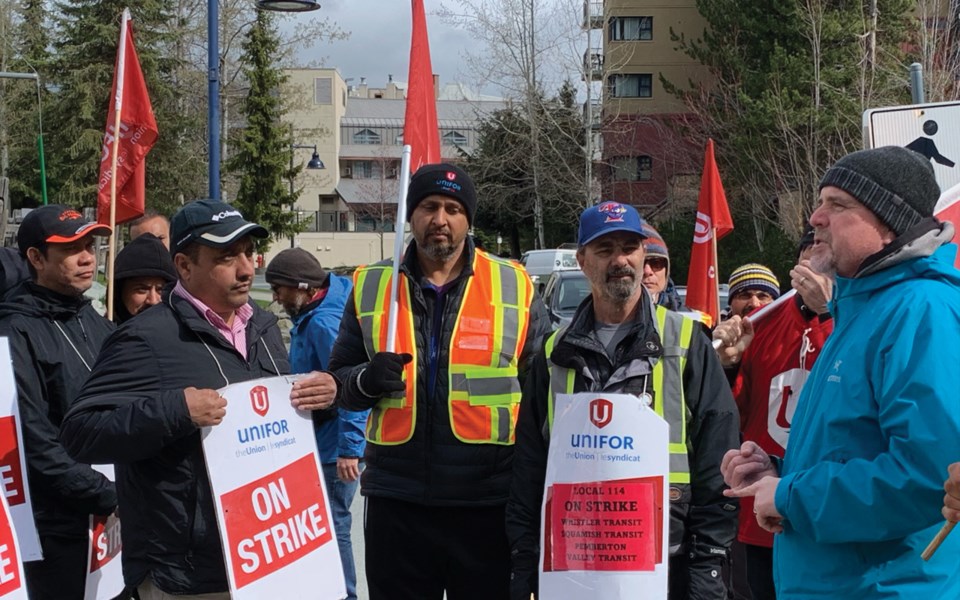UPDATE: Pacific Western Transportation (PWT) has just confirmed to Pique that it has accepted a new contract for local transit workers, officially putting an end to the Sea to Sky transit strike after 137 days.
Wage parity with Vancouver transit workers was the remaining major hurdle to cross in the lengthy negotiations, and although this collective bargaining agreement still does not bring them to parity, Unifor said in a release that a "ground-breaking" cost of living adjustment was "a key factor" for Local 114 members in the vote.
“This incredible victory for livable wages wouldn’t have been possible without the rock-solid picket line solidarity and the unwavering support of Sea to Sky communities,” said Unifor's western regional director Gavin McGarrigle in the release.
Special mediator Vince Ready was appointed last month to help resolve the dispute, and began meeting with the parties on June 6. Both sides had up to 10 days to reach a mediated settlement, after which they were given five days to either accept or reject Ready's non-binding recommendations. There was some confusion on the timeline that led to a deal. A spokesperson for PWT told Pique earlier today that it was waiting for Unifor's vote on the settlement before it either accepted or rejected the deal, the deadline for which was tommorow. Then, after news of the vote came out, PWT clarified that the company had in fact accepted the terms of the offer yesterday.
According to Unifor, Ready agreed in his recommendations it was "irrefutable" the cost of living in the region was problematic and contributing to the months-long stalemate. Ready ultimately recommended a cost of living adjustment be paid based on B.C.'s monthly consumer price index (CPI). If the CPI increase exceeds the average annual wage increase negotiated for 2021 to 2024, Ready proposed having PWT add the difference to the existing four-per-cent wage hike, effective April 1, 2024.
“Unifor members have set the standard for workers across British Columbia. As inflation rises, wages must keep up,” said McGarrigle. “We will take this principle to negotiations in every sector. Workers demand fair wages and a decent standard of living.”
In its own release Tuesday, PWT noted that Ready found in his analysis “no compelling reason to alter the wage increases and signing bonus” from the original tentative agreement because “wage rates . . . meet and exceed wages paid to transit drivers covered under collective agreements with competitor employers,” and “the yearly wage increases already and signing bonus agreed to by the parties ... also meet and exceed the general level of wage increases negotiated in collective agreements in different sectors/industries throughout the Province of BC.”
The recommended five-year collective agreement, retroactive to April 2020, includes annual wage increases of 1.5, two, three, three, and four per cent, Unifor said, for a total 13.5-per-cent increase over the term, plus a two-per-cent signing bonus for 2022. Pensions for the transit workers will migrate from an employer RRSP top-up to a CAAT pension plan. Full benefit coverage would also be extended part-time workers, who were previously ineligible.
Pique will have more on this story in Thursday's print edition.



